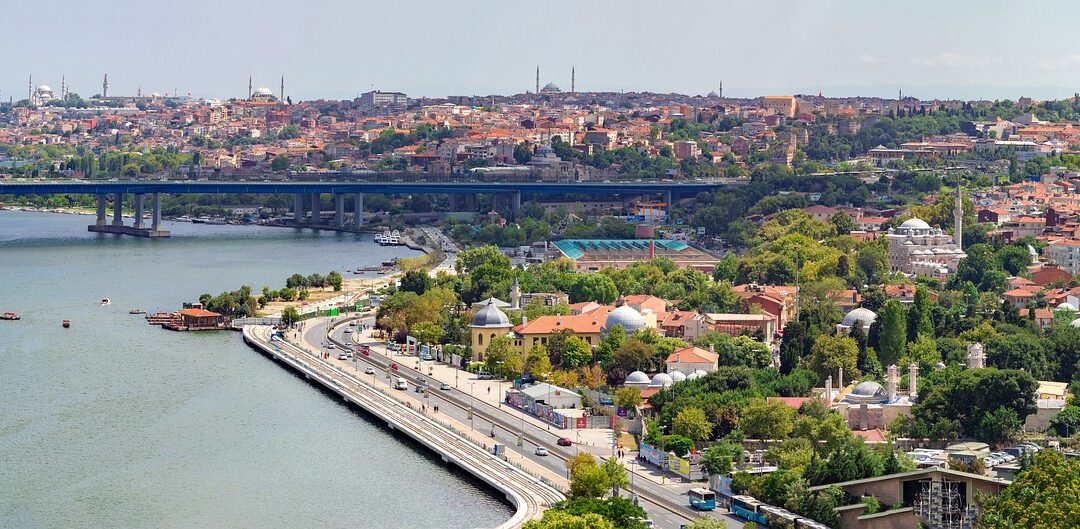New report says Türkiye can reap $146bn over 20 years if it boosts climate resilience and adaptation and mitigates greenhouse gases across its economy.
According to a new report from the World Bank, Türkiye stands to reap $146bn over the next two decades, but only by taking effective and appropriate actions on climate change now.
The World Bank’s Türkiye Country Climate and Development Report (CCDR) suggests the huge economic benefits to Türkiye would come largely from reductions in fuel imports and health benefits from reduced air pollution. It would also contribute to energy security and lower energy expenditures.
To achieve that, the report calls for a deep decarbonisation of the power sector, energy efficiency and electrification in buildings and transportation, as well as reduction of carbon and other greenhouse gas emissions in industry and agriculture.
Presently, Türkiye is the 17th largest carbon emitter and has pledged to achieve carbon neutrality by 2053. Turkey has also had success with a decades-long programme to improve energy security, which this report would see it improve further.
The CCDR, a new series of country diagnostic reports from the World Bank Group, explores the linkages between climate and development to identify priority actions to reduce carbon emissions and build resilience, while supporting economic growth and poverty reduction. The Türkiye CCDR is the first to be issued in the new report series.
Anna Bjerde, World Bank vice president for the Europe and Central Asia region explained: “Like so many countries around the world, Türkiye is experiencing extreme weather events brought on by climate change. With the ratification of the Paris Agreement on Climate Change last year, Türkiye joins the global community to tackle this crisis. The CCDR will allow the World Bank to expand our successful partnership with Türkiye to deliver more transformative action to protect lives and livelihoods.”
Sectors that the report focuses heavily on, include:
Power: Deep decarbonization of the power sector requires a sustained transition from coal, expansion and integration of renewable energy, and decisive actions to boost energy efficiency. This will help Türkiye achieve energy security, reduce energy costs, and meet burgeoning demand.
Buildings and Transportation: Better buildings and transport infrastructure can save lives through higher resilience, but also yield economic benefits by being more energy efficient, improving supply chains, and enhancing mobility, while reducing congestion and air pollution to make cities more livable.
Industry: Reducing emissions in industry and manufacturing is a long-term challenge with short-term opportunities that rely on mobilising the most recent and most efficient technologies. For Türkiye, transitioning to greener and more efficiency technologies is also a way of maintaining or even growing its export market share with the European Union.
Investments in resilience are also urgent and essential in a country heavily affected by natural disasters. In 2021 alone, 107 floods, 66 forest fires, 16 snowstorms and 39 landslides occurred in Türkiye, according to official data.
Auguste Kouame, World Bank country director for Türkiye, said: “A resilient and net zero pathway, which can help Türkiye achieve its development and climate objectives while expanding economic and social gains, is feasible. Today, thanks to achievements made in renewable energy, solar and wind are the cheapest way to meet most future power demand.”
The launch of CCDR
Integrating climate and development is a pillar of the World Bank Group’s Climate Change Action Plan 2021-25. To support this, it has launched a new diagnostic tool: the Country Climate and Development Report, which analyses how a country’s development goals can be achieved in the context of adapting to and mitigating against climate change.
These reports will reflect the country’s climate commitments and identify ways to support their implementation through public and private sector solutions. They will capture the centrality of people in policies on climate change adaptation and mitigation, assessing how climate risks affect people, and ways in which governments can build resilience and address poverty, distributional and job impact of climate change and climate action.
The Türkiye Country Climate and Development Report is the first of these reports to be published. You can head it here.
The post World Bank: Türkiye set for $146bn in climate savings appeared first on Infrastructure Global.

